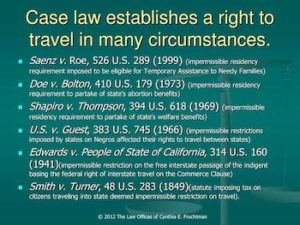
*On this date in 1966, the Supreme Court decided United States v. Guest, 383 U.S. 745. Justice Potter Stewart authored this landmark decision. The Court extended the protection of the 14th Amendment to citizens who suffer rights deprivations at the hands of private conspiracies, where there is minimal state participation in the conspiracy.
The Court also held that there is a Constitutional right to travel from state to state. The question of whether Congress can punish private conspiracies was avoided. However, Justice Clark asserted that "there now can be no doubt that the specific language of 5 empowers the Congress to enact laws punishing all conspiracies - with or without state action - that interfere with 14th Amendment rights." Justice Hugo Black and Justice Abe Fortas joined Clark's concurrence.
The case arose from the killing of Lemuel Penn, an African American reserve officer traveling north in a car with two other black Reserve officers. He was shot and killed on a bridge nine days after the Civil Rights Act of 1964 passed. The murder happened in Madison County, Georgia, and the alleged killers were charged but acquitted there by an all-white jury. The federal indictment in question arose after the acquittal. In District Court, the six defendants successfully "moved to dismiss the indictment on the ground that it did not charge an offense under the laws of the United States," according to the case.
The Supreme Court reversed. The argument revolved around whether Congress intended to apply equal protection rights to citizens deprived of said rights on public facilities, such as roads and bridges or interstate commerce facilities, by private actors cooperating with public actors. In this case, "public actors" were the police who responded to the murderers' false reports that Penn and his cohorts had committed crimes.